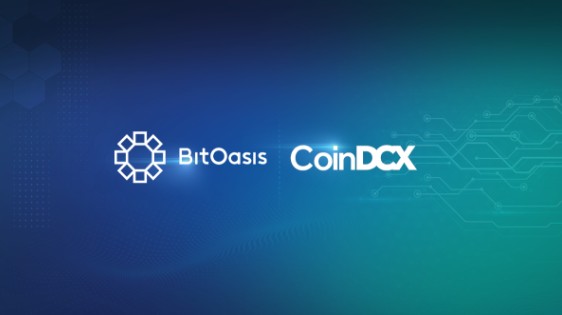CoinDCX Rumors and Why BitOasis Could Be Coinbase’s Real Prize

When Indian crypto exchange CoinDCX disclosed a $44 million hack in July 2025, the market’s reaction was swift. Within days, reports surfaced claiming that Coinbase was in “advanced talks” to acquire CoinDCX for less than $1 billion—a figure far below its $2.2 billion peak valuation during the last bull run. CoinDCX’s leadership was quick to respond. CEO Sumit Gupta went public to shut down the speculation, stating clearly that CoinDCX was “super focused” on building India’s crypto future and “not for sale.” Coinbase, true to form, neither confirmed nor denied the chatter, repeating its standard line that it routinely explores global opportunities to “build, buy, partner, or invest.”
The rumor cycle may have been short-lived, but it raises a deeper question that lingers: if Coinbase were to buy CoinDCX—or any exchange in India—what would it really be after? The answer may not lie in Mumbai or Bangalore, but in Dubai.
CoinDCX’s acquisition of BitOasis in 2024 quietly shifted its global footprint. BitOasis, founded in 2016, is one of the UAE’s earliest crypto platforms and has since secured a full Virtual Asset Service Provider license from Dubai’s Virtual Assets Regulatory Authority (VARA). That license isn’t just a compliance box ticked; it’s a gateway to the UAE’s regulated crypto market, one of the most sought-after jurisdictions for global exchanges. Since the takeover, BitOasis has operated under its own brand but with CoinDCX’s capital and infrastructure behind it.
This makes BitOasis the strategic centerpiece in any future deal. If Coinbase were to buy CoinDCX, it would instantly inherit a fully licensed UAE entity and an operational bridge to the Gulf’s growing crypto economy. In many ways, BitOasis could be the “real prize,” offering Coinbase something it has yet to secure on its own: direct, licensed access to the Middle East’s most advanced regulatory framework.
The hack that triggered the valuation drop adds another layer of complexity. While CoinDCX’s breach targeted only internal liquidity wallets—user funds were never compromised—it chipped away at market confidence. For opportunistic buyers, it created a window to speculate on acquiring an otherwise solid exchange at a discount. But for CoinDCX, selling at that moment would have meant conceding its long-term vision in India and, by extension, its regional ambitions through BitOasis.
CoinDCX’s CEO, Sumit Gupta, described the breach as a “sophisticated social engineering attack,” noting that hackers targeted an employee to gain unlawful access to internal systems. He confirmed that the company filed a First Information Report (FIR) with the Karnataka Police and is fully cooperating with authorities as the investigation continues.
There’s also a larger story here about the M&A dynamics in crypto. Security incidents have a way of accelerating acquisition rumors: valuations dip, headlines swirl, and big players are suddenly “in talks.” We saw it when Binance scooped up distressed platforms during past downturns, and the same narrative is now echoing with CoinDCX. Whether the talks were ever real or just market noise, the fact that BitOasis sits within CoinDCX’s portfolio makes every rumor ripple into the UAE’s crypto scene.
For now, CoinDCX remains independent, Coinbase hasn’t put out an offer, and BitOasis continues to expand under the CoinDCX umbrella, recently announcing its launch in Bahrain alongside its UAE base. But the story is unlikely to end here. In a market where valuation shocks and regulatory positioning drive strategic moves, it’s fair to ask: if Coinbase—or any global exchange—ever returns to the table, is CoinDCX the acquisition target, or is BitOasis the real reason for the interest?





